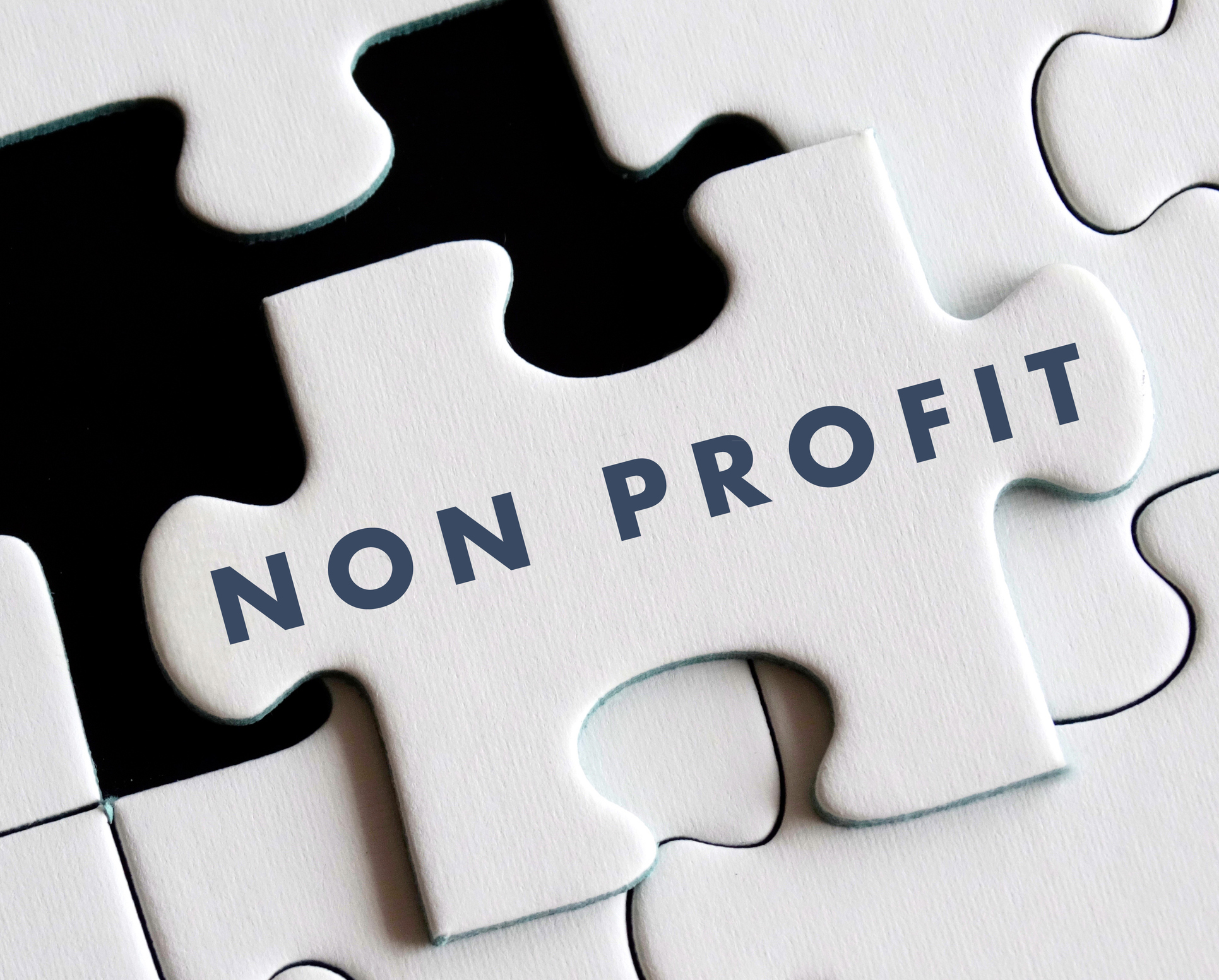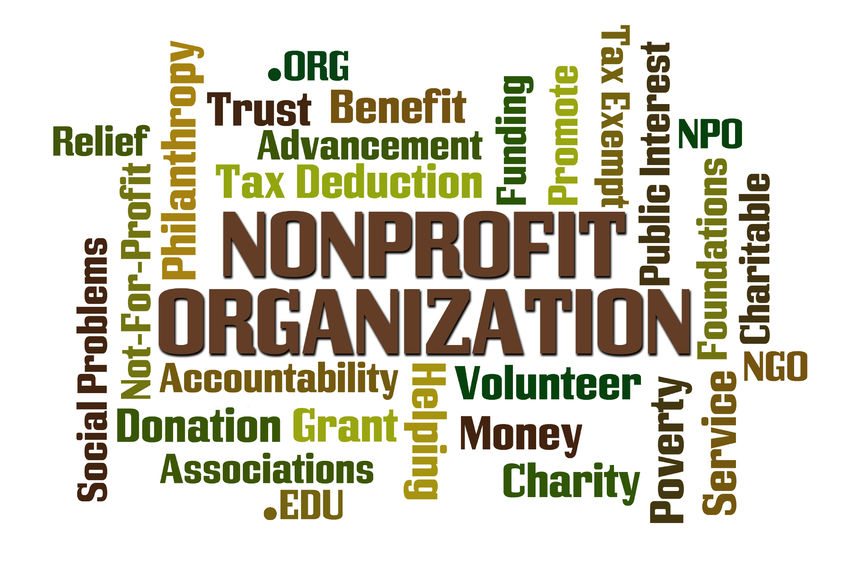Discovering the Diverse Features and Obligations of a Nonprofit Firm in Dealing With Social Issues and Promoting Adjustment
Not-for-profit companies serve as important representatives of modification within society, tackling a myriad of social problems via diverse techniques. Their obligations expand beyond plain service arrangement; they engage in campaigning for, resource mobilization, and area outreach, typically acting as a bridge in between essential services and marginalized populaces.
Comprehending Nonprofit Firm Duties
The efficiency of nonprofit agencies pivots on a clear understanding of their varied duties within culture. Not-for-profit companies commonly operate as solution providers, delivering vital programs and sources to underserved populations.
In addition, nonprofits play an important role in campaigning for, elevating awareness and influencing policy choices that impact their areas. By involving in research study and public education, these companies assist form public discussion and advertise educated decision-making - nonprofit agency. They additionally function as systems for volunteerism, setting in motion area participants to add their time and skills towards collective objectives
In addition, nonprofit firms commonly act as conveners, combining diverse stakeholders to foster collaboration and collective influence. This joint strategy enhances their capacity to attend to complicated social concerns effectively. Understanding these diverse duties is crucial for making the most of the capacity of not-for-profit companies in creating sustainable social change and boosting general community health.
Neighborhood Involvement and Outreach
Effective area engagement and outreach are basic parts of nonprofit companies' strategies to build and foster connections trust fund within the areas they offer. These efforts concentrate on understanding community needs, advertising awareness of available resources, and motivating involvement in programs developed to resolve social concerns. Not-for-profit organizations use a range of methods to engage with community members, such as workshops, informational sessions, and collective events.
Outreach initiatives offer to enhance relationships with varied populations, especially marginalized groups that might face barriers to accessibility. By utilizing culturally appropriate communication strategies and leveraging regional partnerships, nonprofits can improve their exposure and demonstrate their commitment to community empowerment. This strategy not only grows a sense of belonging yet also increases the possibility of sustained interaction.
Moreover, reliable area engagement surpasses simple engagement; it involves actively paying attention to neighborhood members' comments and integrating their understandings into program development. This collaborative process makes sure that the solutions offered are receptive, relevant, and tailored to the distinct difficulties encountered by the area. Inevitably, promoting solid links with involvement and outreach can lead to more impactful interventions and a higher cumulative initiative towards promoting positive social change.
Campaigning For and Plan Influence
Campaigning for serves as an important device for nonprofit agencies to affect public law and drive systemic adjustment. By leveraging their expertise and community insights, these organizations can efficiently stand for marginalized populations and address pressing social issues. Nonprofits participate in campaigning for with various techniques, consisting of public understanding campaigns, grassroots mobilization, union structure, and straight lobbying of policymakers.
Through these initiatives, nonprofit firms aim to form legislation and policy frameworks that line up with their mission and the needs of the areas they serve. They conduct study, collect data, and share engaging stories to highlight the necessity of details problems, making sure that decision-makers are educated and inspired to act. This process not only amplifies the voices of those influenced by social injustices but additionally cultivates a much more comprehensive and equitable policymaking setting.
Additionally, campaigning for initiatives usually look for to produce long-term structural modifications, addressing source instead than merely easing signs. By focusing on plan impact, nonprofit agencies add to a more comprehensive understanding of social challenges and advertise remedies that can result in sustainable you can try here renovations in social health. Inevitably, advocacy is essential to the transformative duty nonprofits play in producing a simply and fair culture.
Fundraising and Resource Management
Nonprofit companies count on robust fundraising and source management approaches to support their advocacy initiatives and maintain their goals. Effective fundraising is vital for guaranteeing the availability of funds required to apply programs and activities that address pushing social concerns. This process frequently involves diversifying revenue streams with grants, individual contributions, company sponsorships, and fundraising occasions. By using a multi-faceted strategy, nonprofits can mitigate the risks associated with dependence on a single financing source.
Source administration is similarly important, as it includes the critical appropriation of both human and financial sources to maximize impact. Nonprofits should create budgets that align with their objectives while making certain transparency and liability to stakeholders. This includes routine surveillance of expenses and adjusting approaches as required to enhance source use.

Collaboration and Collaborations
While many companies pursue their objectives individually, cooperation and collaborations can dramatically improve the efficiency of not-for-profit companies. By functioning together with various other nonprofits, federal government entities, and personal field organizations, nonprofits can pool sources, share proficiency, and enhance their influence on social problems. Joint efforts typically cause ingenious remedies that may not be attainable individually, leveraging the staminas of each partner to deal with intricate challenges.

Ultimately, effective partnership requires clear interaction, shared goals, and common respect among companions. By embracing a cooperative approach, nonprofit companies can develop lasting networks that not just address immediate social problems but additionally add to long-term systemic modification, promoting an extra equitable society. With cooperation, nonprofits can thrive and maximize their capacity for meaningful influence.
Final Thought
Nonprofit companies function as vital entities in dealing with social issues and fostering adjustment within areas. Via varied functions such as neighborhood campaigning for, involvement, and source administration, these companies successfully mobilize resources and assistance for underserved populaces. Their collaborative initiatives with various stakeholders improve the capability to affect public policy and promote architectural changes. Eventually, the diverse duties of Clicking Here not-for-profit firms substantially add to the search of social justice and the improvement of area wellness.
Recognizing these diverse roles is important for making the most of the possibility of nonprofit firms in creating sustainable social change and boosting overall area wellness.
Effective community engagement and outreach are basic parts of not-for-profit companies' strategies to develop and cultivate connections depend on within discover this the communities they serve. By working together with various other nonprofits, federal government entities, and personal market organizations, nonprofits can merge sources, share knowledge, and enhance their influence on social issues.Not-for-profit companies serve as vital entities in cultivating and dealing with social concerns change within communities - nonprofit agency. Inevitably, the complex roles of not-for-profit firms dramatically contribute to the pursuit of social justice and the improvement of community health